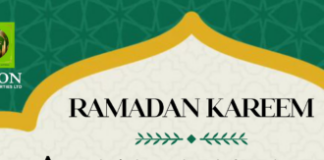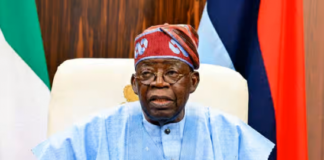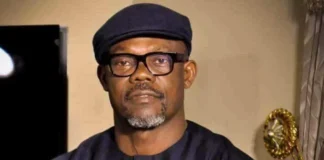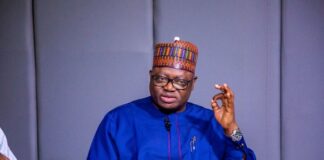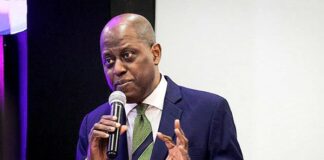Although we are no longer in the heat of the pandemic, it is incontrovertible that the pandemic brought a lasting shift to Nigeria’s advertising ecosphere.
Since the launch of the first news outlet in Nigeria in 1859, Nigeria’s advertising industry has grown to become a flourishing self-sustaining ecosystem valued at a whopping 425 million U.S. dollars as of 2017 and a projected foreseeable exponential growth in the coming years as a result of the dominance of internet revenue.
While many other industries are gradually recovering and working to bounce back from the impact of the COVID-19 pandemic, this economic powerhouse is set to remain on an upward trajectory Post-covid.
Amidst several months of grounded airplanes, closed churches and empty streets, several countries and global economies have experienced the shock waves of the COVID-19 pandemic. From real estate to finance and healthcare – especially healthcare – almost every sector of the economy has been touched in one way or another. One industry, however, has remained unshaken, resilient, withstanding all the knocks and shocks and continuing to thrive despite oppositions – advertising.
This is not to say that commercial advertising did not experience its fair share of economic downturn, even taking a significant plunge during the pandemic year. In fact, many brands reordered their priorities entirely, choosing to engage in COVID-19 awareness campaigns across social media. Some others took to leveraging collaborations with non-governmental organizations (NGOs) as well as the government to consolidate efforts and flatten the curve of COVID-19 spread, and provide relief packages to vulnerable target groups within the society – although, in hindsight, this may have been a strategic move to ensure that brands are projected positively continuously.
In any case, the advertising industry globally is fast rising back to pre-pandemic levels and even experiencing exponential growth— a vast contrast from the diminishing returns that it had begun to experience a few years back — and the reason is not far-fetched. Several factors are responsible for this drastic turn of events. Firstly, it goes without saying that advertising thrives on consumer behavior. And if there’s one thing we can be certain about post-pandemic, it’s that consumer behavior has changed significantly. What thriving and innovative advertising companies did during the pandemic was to change with the times and seasons that consumers were in. This meant changing from regular TV and radio advertising to digital advertising. This switch was to align with the fact that consumers spent more time at home in front of screens. Commuting time was allocated to binge-watching videos online, and as a result, digital reigned supreme.
Today, COVID-19 has definitely expedited the process of transforming legacy marketing structures and practices for the digital economy. In Nigeria especially, the pandemic served as an exponential accelerator for connected TV and E-commerce marketing- which though were already in place, were struggling to gain widespread popularity. By dwelling more on social media and direct response selling, retailers were able to sell their goods to a wider audience due to shifting consumer behavior to online trade channels, thereby promoting the growth of Nigeria’s e-commerce industry.
This wasn’t the case in the last decade. Just a few years back, advertisers in Nigeria spent a large chunk of their time, effort and resources trying to encourage consumers to buy something they haven’t seen or tried on.
Brands across all industries struggled to use the power of their online presence to engage potential customers and drive them down the marketing funnel through video adverts, blogs, email newsletters, or other types of digital lead generation activities. Even before the pandemic, converting that online presence to actual sales was a difficult feat.
However, COVID-19 has drastically altered the rules of the game.
With the pandemic keeping everyone at home, time spent on convincing was less, and many more consumers became more inclined to buy things and use services they needed online. As a result, several mega-companies across Nigeria took advantage of this, leaving advertisers no choice but to keep up with the times, spending about $350 million on advertising and marketing. Whilst there was no dominant sector, the likes of telecommunications giant MTN and beverage colossus, Nigerian Breweries led the table as the highest spenders in the year.
The influencer niche is one area that has been cemented fully into the world of advertising. If there’s one thing that took the internet by storm in 2020, it was influencers. With the rise of social media, apps like TikTok, Instagram and Facebook (Now Meta) became entertainment hotspots for millennials and Gen Zs, more and more people rose to the influencer status, making the position crucial to Nigeria’s advertising industry. In fact, a survey carried out by the Nigeria Influencer Marketing Report (NIMReport) revealed that over 30% of advertisers now value influencer marketing as part of their marketing strategy.
Although we are no longer in the heat of the pandemic, it is incontrovertible that the pandemic brought a lasting shift to Nigeria’s advertising ecosphere. We may have coined the term “post-covid era”, but in actual fact, the pandemic has ushered us into a new age, a new season that we may never return from. This means that the bar has permanently risen for advertising agencies and businesses across Nigeria as consumers are now holding them to higher standards. What they demand nowadays are tactful and mindful marketing strategies. They’re no longer asking if you have what they want but rather expect you to have what they want.
To navigate this new terrain, advertising in Nigeria will need to be more data and technology focused, with advertisers working to integrate some form of artificial intelligence or machine learning into the mix. With the right data, advertising companies will be fully equipped to create the right consumer experiences across one or more dimensions of the four Cs of marketing: Commerce, Community, Content, and Convenience. Rather than a one-size-fits-all approach to these four areas, consumers require a more personalized experience.
Experts such as PWC have predicted that Nigeria’s entertainment market is poised to reach $10.8 billion (N4.4 trillion) in 2023, having reached $4.5 billion in 2018. With the interconnectedness of advertising and entertainment and the recent tactic of presenting advertising as entertainment, it is imperative that relevant stakeholders properly harness the immense benefits available for the advertising sector. This can be done in several ways, with collaboration being paramount.
Partnerships between sectoral groups in marketing and communications will expand the advertising landscape of the Nigerian market and will bring world-class advertising opportunities and a broader reach to the target audience, clients and agencies. Advertisers Association of Nigeria (ADVAN), Media Independent Practitioners of Nigeria (MIPAN), Association of Advertising Agencies of Nigeria (AAAN), Broadcasting Organizations of Nigeria (BON) and other Industry leaders should consolidate their cooperations expertise on growth-focused activities that will cause the advertising industry to skyrocket in the coming years.
The pandemic has undoubtedly elevated the status of advertising and marketing, with both taking their rightful places as drivers of digital transformation, a key leader of the customer experience journey, and the voice of the consumer — all of which are of utmost importance to C-suite executives. This means that advertising now has the opportunity to seize an ongoing critical role in high-level dialogue and decision-making processes, thereby driving the company’s broader objectives and innovation agenda.
For brands willing to be creative and experimental with their advertising strategies, the post-COVID-19 reality is a unique moment to aim for higher market share. (Nairametrics)










